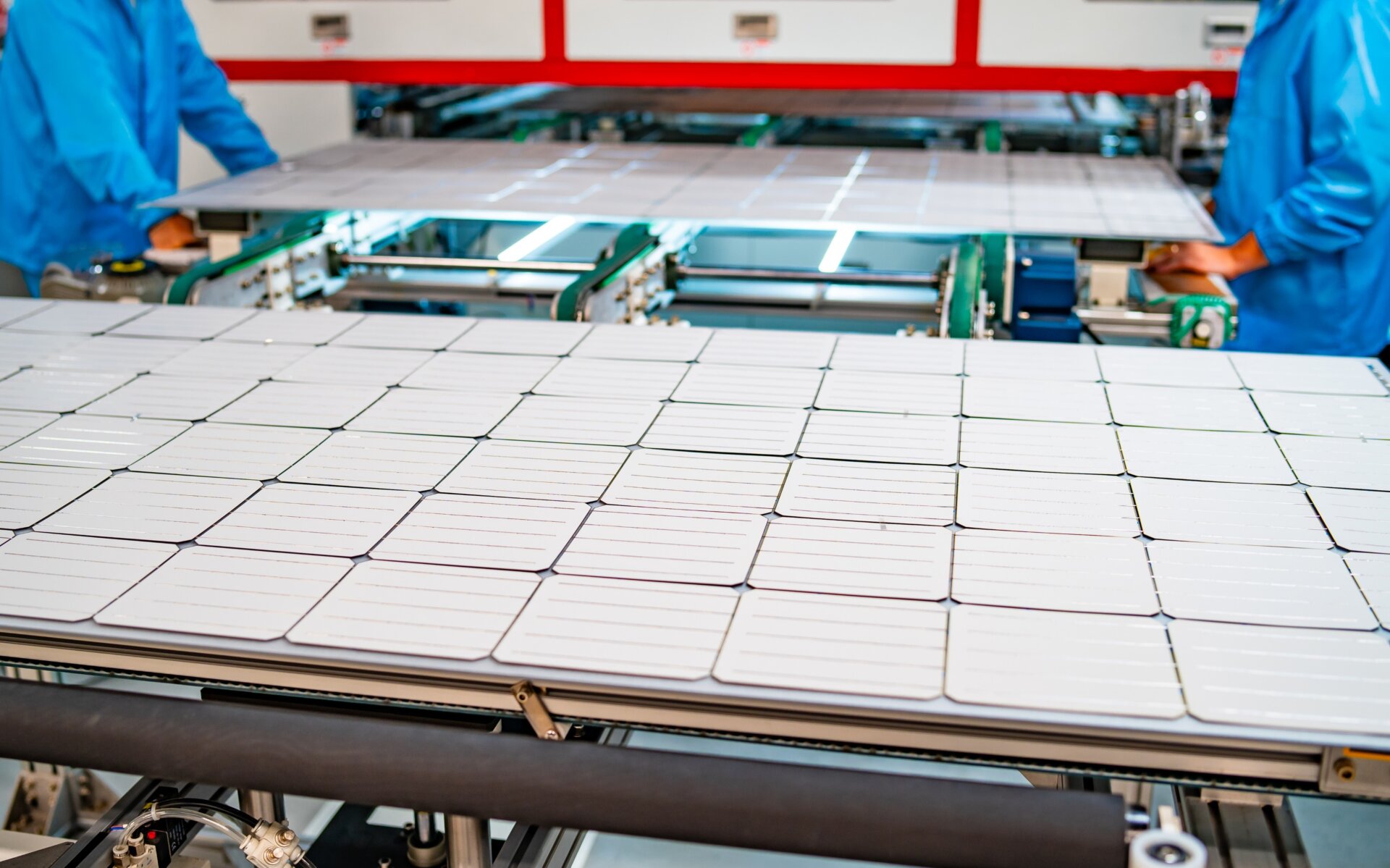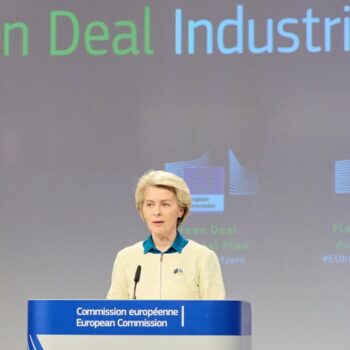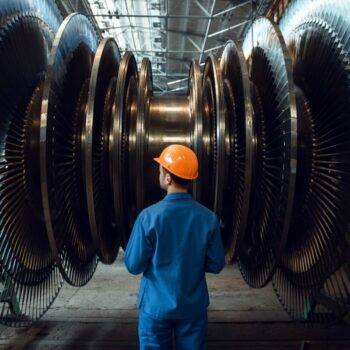Today, the European Commission released its proposals for a Net-Zero Industry Act and a Critical Raw Materials Act as part of its Green Deal Industrial Plan – the EU’s response to the US Inflation Reduction Act.
The proposals aim for Europe to manufacture more clean technologies at home, process more critical minerals, scale CO2 storage to reduce industrial emissions, and invest in new cross-EU value chains.
While daring, the plan overlooks the need for deploying clean tech and decarbonising heavy industry, risks hampering global cooperation, and lacks clear safeguards for CO2 storage.
Story
Today, the European Commission released its proposals for a Net-Zero Industry Act (NZIA) and a Critical Raw Materials Act (CRMA) – two key pillars of the Green Deal Industrial Plan.
- The NZIA aims to accelerate Europe’s capacity to manufacture clean technologies domestically and facilitate CO2 storage capacity for polluting industries.
- The CRMA seeks to secure access to the materials necessary for manufacturing clean tech by sourcing and processing more in the EU.
A cleantech industrial and investment plan had been missing from the European Green Deal to date. As proposed, the Green Deal Industrial Plan is a daring but risky bet to be built upon.
Both the NZIA and CRMA are a positive move for Europe to further invest in new cross-EU value chains while upholding stringent environmental, social and human rights standards. Moreover, targets for expanding CO2 storage capacity in Europe can ultimately help reduce carbon emissions from industries with unavoidable process-based emissions.
However, the plan presents significant risks that co-legislators will have to address. It does not tackle the bottlenecks in installation grid connections, and skilling up the workforce downstream, nor prioritises access to CO2 storage for those industries that need it the most – critical to deploy clean tech and effectively decarbonise heavy industries. Moreover, unless the NZIA matches the CRMA’s approach for more EU collaboration with clean tech manufacturers abroad, it can be seen as hoarding clean value chains – hampering climate cooperation with developing countries.
In complement to these proposals, the Commission aims to deliver a public finance boost to clean tech manufacturing by loosening state aid rules (last week) and establishing an ad-hoc fund by June. Effectively mobilising public and private finance towards EGD objectives will require a more robust transition finance framework in the EU.
Quotes
Manon Dufour, Head of E3G’s Brussels office, said:
“The EU’s climate and clean energy targets had made it clear it would need renewables, heat pumps, and batteries in quantity. Today the Commission is clearly telling manufacturers ‘produce them here’. This call would be all the more credible with a new push on deploying these technologies and training up people to install them”
Domien Vangenechten, E3G Senior Policy Advisor, industrial decarbonisation, said:
“Despite the name, the Net-Zero Industry Act does little to decarbonise energy-intensive industries beyond increasing CO2 storage capacity. The more important pieces of the puzzle – deploying efficiency and electrification of industrial processes – need immediate attention”.
Ignacio Arroniz, E3G Researcher, trade and climate, said:
“The EU has finally got a plan to secure critical minerals’ supply –the Achilles’ heel of the transition. For it to work, the EU needs strong partnerships with developing countries. They’ll expect a fair share of downstream industries like batteries and renewables”
Ryan J. Bain, E3G Researcher, industrial decarbonisation and CCS, said:
“We welcome feasible solutions for decarbonising hard-to-abate industries through more CO2 storage capacity, but primary emission reductions through other means must remain the priority to achieve climate neutrality by 2050”
– ENDS –
Available for comment
Manon Dufour (EN, FR), Head of E3G Brussels office.
+32 477 76 78 01. manon.dufour@e3g.org
Domien Vangenechten (EN, NL), Senior Policy Advisor, industry decarbonisation.
+32474871827. domien.vangenechten@e3g.org
Ignacio Arroniz (EN, ES, FR, IT), Researcher, trade and climate.
+34 689 768 246. Ignacio.arroniz@e3g.org
Ryan J. Bain (EN, FR), E3G Researcher, industrial decarbonisation.
+32 496 52 58 59. ryan.bain@e3g.org
Notes to Editors
- E3G is an independent climate change think tank with a global outlook. We work on the frontier of the climate landscape, tackling the barriers and advancing the solutions to a safe climate. Our goal is to translate climate politics, economics and policies into action. About – E3G
- For further enquiries email press@e3g.org or phone +44 (0)7783 787 863


